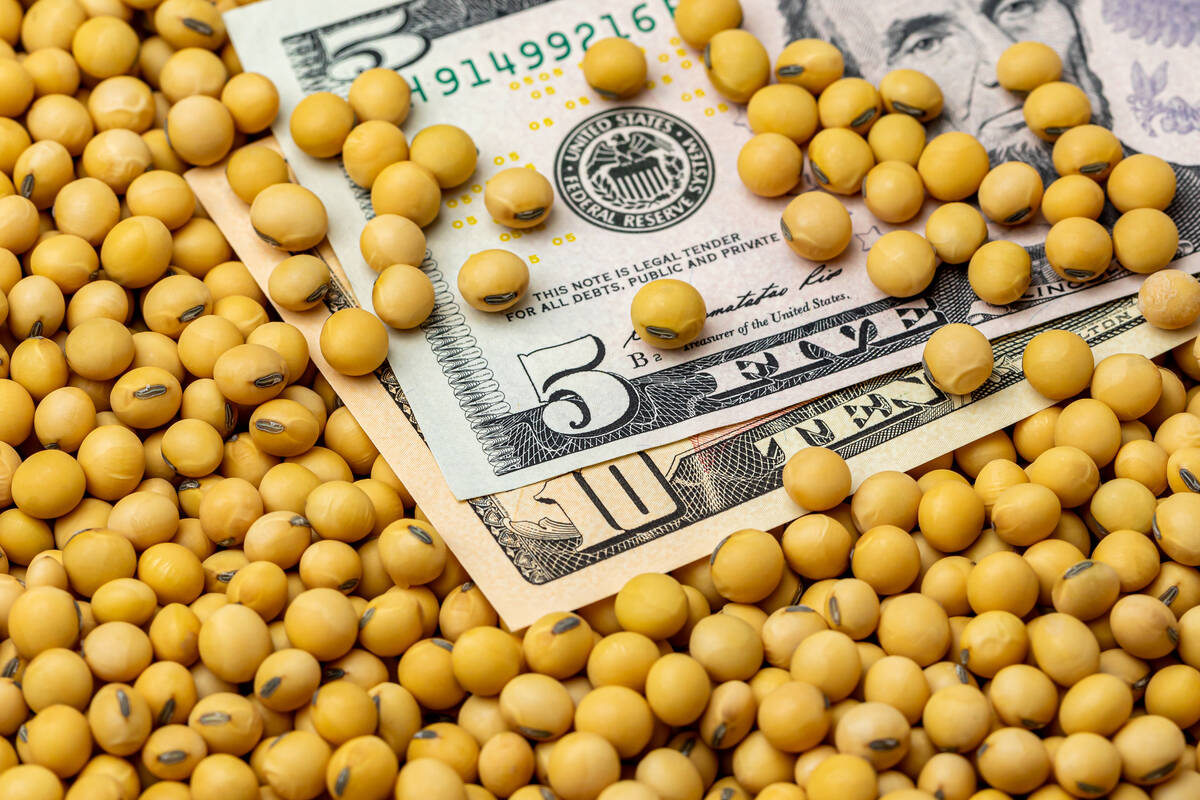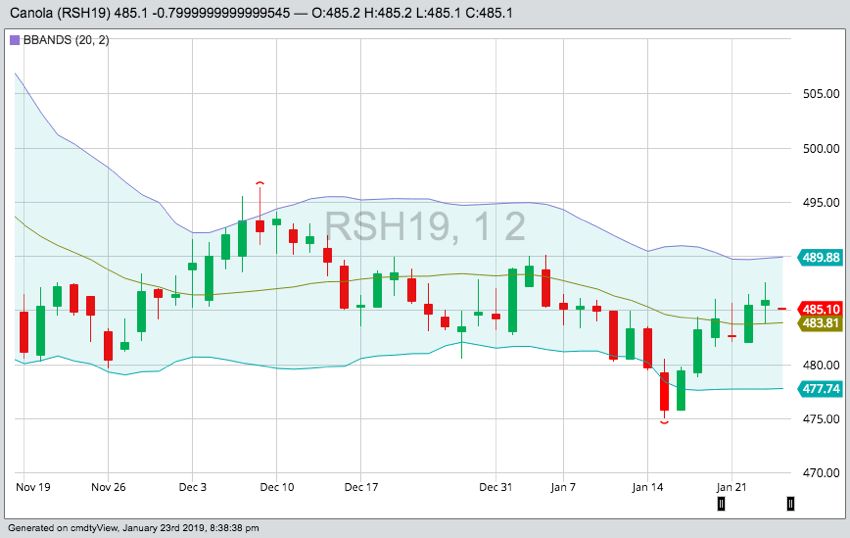The Canadian dollar and vegetable oil are the main supports for canola contracts on the futures markets, but sluggish exports are holding it back from further gains, said a market analyst.
Other than being down on Monday, canola has finished up in five of its last six sessions, according to Pro Farmer Canada’s Mike Jubinville.
“We have been generally trading higher, but we are still within the fairly tight confines of a range, say, for the March contract, with $480 support and $490-$495 is the resistance,” he said.
Read Also

CBOT Weekly: Additional soybean purchases strengthen U.S. soy
There were good gains for the Chicago soy complex during the week ended Feb. 4, due to positive news that Wednesday.
With the Canadian dollar having remained under 75 U.S. cents recently, it has been supportive for exports.
“The falling dollar has been a buffer for the canola market, cushioning the blow of any negative news in the marketplace,” Jubinville said, adding vegetable oil has also been supportive.
However, Jubinville said, canola exports have been sluggish at 428,900 tonnes behind last year’s pace. That’s despite China’s aggressive buying earlier in the marketing year.
As of Jan. 13, Canada’s total canola exports during the 2018-19 crop year-to-date reached 4,628,100 tonnes, well off of the 5,057,000 tonnes in the previous year, according to the Canadian Grain Commission.
As to whether the current diplomatic row between Canada and China is having an effect on exports or not, he said he wasn’t sure.
The dispute began with the arrest of a Huawei executive by Canadian authorities in early December. Two Canadian nationals were soon detained by Chinese authorities. A third Canadian, convicted of drug smuggling in China, had his sentence changed from 15 years in prison to the death penalty. Over the last two months both countries have traded verbal shots.
“I like to think China does need the canola and will eventually be here to buy it as we go through the second half of the marketing year,” Jubinville said.
With ample canola supplies available, he said the current slow pace of exports will continue to hold prices down.
— Glen Hallick writes for MarketsFarm, a division of Glacier FarmMedia specializing in grain and commodity market analysis and reporting.
















